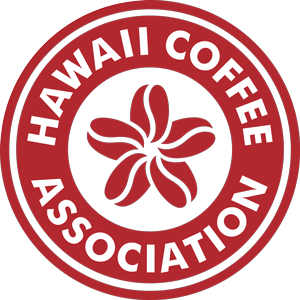Dear colleagues,
The World Intellectual Property Association (WIPO at https://www.wipo.int) is hosting its first Asia/Pacific virtual conference dedicated to coffee production on November 10th and 11th. The program is two half-days of short lecture and panel sessions, featuring coffee and intellectual property experts who will address a broad range of strategies, opportunities, and challenges creating value in coffee production and trade using intellectual property tools. A copy of the conference program and short introduction to the speakers is attached.
Registration is free and all are welcome to attend, so please feel free to distribute this announcement. Please write or call anytime at +1 (808) 990-8717 with any questions. We hope to see you there!
Sincerely,
Andrew
Details:
Day 1: https://wipo-int.zoom.us/webinar/register/WN_ET6DVCqfTN64QzbBfO3ZHA
November 10, 08:00 - 11:00 GMT +7 (Cambodia/Jakarta/Laos/Thailand/Vietnam / ICT)
Nov. 9 - 17:00 GMT -8 (Los Angeles / US PST)
Nov. 9 - 20:00 GMT -5 (New York / US EST)
Nov. 10 - 03:00 GMT +1 (Geneva / CET)
Nov. 10 - 10:00 GMT +9 (Japan/Korea/Timor-Leste)
Nov. 10 - 11:00 GMT +10 (Port Moresby/Brisbane)
Nov. 10 - Noon GMT +11 (Sydney / AEDT)
Nov. 10 - 14:00 GMT +13 (Auckland)
Day 2: https://wipo-int.zoom.us/webinar/register/WN_VtCETNP_RCidC8kOLair7Q
November 11, 14:00 - 17:00 GMT +7 (Cambodia/Jakarta/Laos/Thailand/Vietnam / ICT)
Nov. 10 - 23:00 GMT -8 (Los Angeles / US PST)
Nov. 11 - 02:00 GMT -5 (New York / US EST)
Nov. 11 - 08:00 GMT +1 (Geneva / CET)
Nov. 11 - 16:00 GMT +9 (Japan/Korea/Timor-Leste)
Nov. 10 - 11:00 GMT +10 (Port Moresby/Brisbane)
Nov. 11 - 18:00 GMT +11 (Sydney / AEDT)
Nov. 11 - 20:00 GMT +13 (Auckland)
Event Summary:
Regional Conference on Adding Value to Coffee Production with Intellectual Property
The world runs on coffee and worldwide consumption is expected to keep growing. Coffee is one of the most important global commodities with raw material trade valued over US $102 billion in 2019, with an economic impact of more than $200 billion in the United States alone.
Worldwide, the coffee industry provides livelihood to some 125 million people, among which twenty-five million smallholder farmers producing 80 percent of the world’s production. Coffee grows mainly in the tropics and trades internationally in US dollars, making it an important and sustainable export contributing significantly to the GDP of many developing countries.
The global market for coffee consumption has matured in recent decades, creating niche segments offering price premiums for uniquely desirable characteristics. Terroir, good agricultural practices, certifications, branding, trademarks, geographic indications, traceability systems, and unique patented processes all contribute to value addition in a thriving differentiated, or specialty, segment of the coffee trade.
APAC coffee policy has historically prioritized productivity improvements to gain market share, with less emphasis on differentiation to increase value. In recent years, this has led to an under-representation of APAC coffees in the highest value and fastest-growing consumer markets. Furthermore, concentration on high volume commodity exports places millions of regional smallholder producers at a disadvantage in direct competition with comparatively few large and efficient coffee agribusinesses exporters in Brazil, the world's largest coffee producer.
The panel will present thought-provoking ideas, strategies, and case studies from around the world. Participants will leave these sessions with a better understanding of global coffee market dynamics and how to better position themselves to take advantage of emerging opportunities and earn more from coffee production using intellectual property. Participants will have the opportunity to engage the experts after the conference and explore possible initiatives with WIPO.
Moderator: Andrew Hetzel
Speakers:
Andrew Ong, Director, Division for Asia and Pacific, WIPO
Carsten Fink, Chief Economist, IP and Innovation Ecosystems Sector, WIPO
Luis Samper, International Consultant, 4.0 Brands
Blanca Castro, Chapter Relations Director, International Women's Coffee Alliance
Darrin Daniel, Executive Director, Alliance for Coffee Excellence
Mario Fernandez-Alduenda, Technical Officer, Specialty Coffee Association
Molly Harriss Olsen, CEO, Fairtrade Australia and New Zealand
Pacita Juan, Co-Chair, Philippine Coffee Board
Sara Morrocchi, Founder and Consultant, VUNA Origin Consulting
Stephen Hurst, Managing Director and Founder, Mercanta
Kraig Kraft, Asia & Africa Director, World Coffee Research
Stephane Passeri, Geographical Indications Expert and Consultant to FAO
Giulio Zanetti, IP Attorney, Adjunct Professor, and Consultant to WIPO
--
Andrew Hetzel (he/him/his)
Coffee Market and Value Chain Specialist
US: +1 (808) 445-9670 | AU: +61 3 9016 0478 (no SMS) | in Hawaii (GMT-10)
https://www.CoffeeStrategies.com
